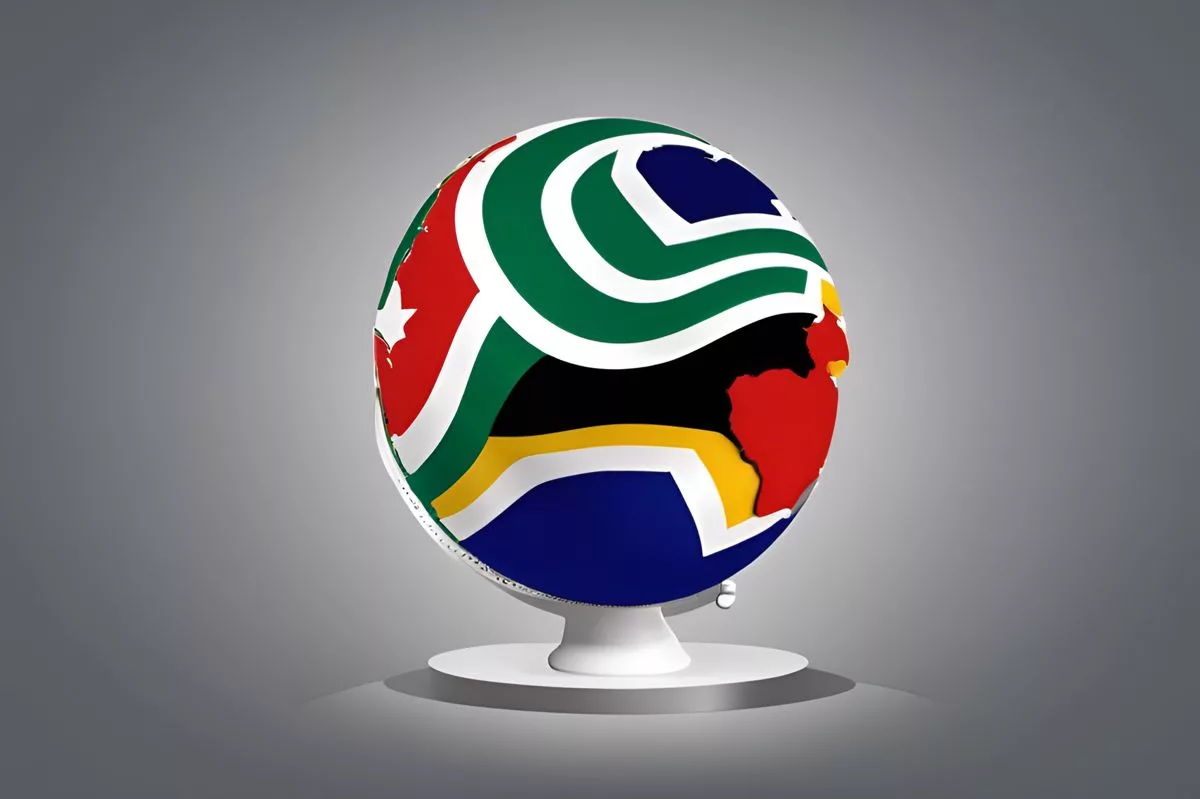South Africa is devoted to upholding human rights and has made significant progress in enforcing the Bill of Rights, but acknowledges that challenges still exist. Minister Naledi Pandor’s speech at the 55th Human Rights Council was an impassioned affirmation of South Africa’s commitment to human rights, both domestically and internationally. The country condemns all forms of discrimination, particularly racism, and is committed to combating it. South Africa believes in a strong United Nations to safeguard human rights and calls for an equitable multilateral system to ensure human rights everywhere and for everyone.
What is South Africa’s stance on human rights?
South Africa is committed to upholding human rights, as reflected in its constitutional democracy and integration of international law into domestic constitution. The country has made considerable progress in enforcing the Bill of Rights, but acknowledges that challenges still exist. The government condemns all forms of discrimination, particularly racism, and is committed to combatting it. South Africa also plays an active role in the international community and believes in a strong United Nations to safeguard human rights.
Minister Naledi Pandor’s Address
In the bustling heart of Geneva, during the 55th Session of the Human Rights Council High-Level Segment, South Africa’s Minister Naledi Pandor delivered an impassioned and articulate speech. Her address was replete with persuasive language and powerful affirmations that underscored her nation’s unwavering devotion to human rights. This unique and insightful glimpse into South Africa’s international policy approach was a significant addition to the global conversation about human rights.
Pandor began her speech by extending heartfelt greetings on behalf of the citizens and government of South Africa. This gesture was more than a diplomatic formality; it was a quiet yet powerful affirmation of South Africa’s role as a committed participant in the world community.
South Africa’s Constitutional Democracy and Commitment to Human Rights
The year 2024 holds a unique significance for South Africa as it signifies the 30th anniversary of the nation’s constitutional democracy. The South African Constitution serves as a beacon of hope in an increasingly unjust world, encapsulating the principles set forth in the Universal Declaration of Human Rights and other crucial international legal instruments. This commitment to uphold the equality, dignity, and worth of every individual is not merely an acknowledgement of the country’s transformative journey. It is also a testament to South Africa’s unwavering commitment to human rights, a commitment intricately woven into the Constitution itself.
In the post-Apartheid period, South Africa has made considerable progress in enforcing the Bill of Rights. The country has not only refined its internal mechanisms but also recognized the significant role of the international community in its journey towards freedom. The integration of international law into the domestic constitution has not only molded the nation’s legal structure but also had a profound impact on its foreign policy.
Challenges and Concerns
Despite its impressive progress, Minister Pandor acknowledged the hurdles that still need to be overcome. She expressed concerns about the division within the Human Rights Council, which is thwarting efforts to focus on victims of human rights violations worldwide. She called for an approach that is free from polarization, selectivity, and double standards, implicitly suggesting that the council should rise above dichotomous views and politics.
Pandor vehemently condemned all forms of discrimination, particularly racism, racial discrimination, xenophobia, and related intolerance. Her reference to the Durban Declaration and Programme of Action emphasized South Africa’s commitment to combat racist ideologies and practices, a pledge that echoes the country’s struggle against Apartheid.
South Africa’s Role in the International Community
Pandor’s discourse extended beyond her national borders, affirming South Africa’s commitment to a strong United Nations. The minister expressed her concerns over the ongoing conflict in Gaza and called for an immediate comprehensive ceasefire, reflecting her nation’s belief in international peace and security.
Minister Pandor underscored the necessity for an equitable multilateral system and the need for reforms in global governance institutions. She believes that these reforms are crucial to safeguarding human rights everywhere and for everyone. Her speech reflected South Africa’s ongoing commitment to the global human rights discourse.
As the world observes South Africa’s steadfast dedication to human rights, the country stands as a beacon of hope and a testament to the strength of constitutional democracy. As South Africa persists in its endeavor to build a more equitable and just society, the international community watches, learns, and applauds the efforts of this vibrant nation.
What is the significance of South Africa’s Constitution in relation to human rights?
The South African Constitution serves as a beacon of hope in an increasingly unjust world, encapsulating the principles set forth in the Universal Declaration of Human Rights and other crucial international legal instruments. This commitment to uphold the equality, dignity, and worth of every individual is not merely an acknowledgement of the country’s transformative journey, but also a testament to South Africa’s unwavering commitment to human rights, a commitment intricately woven into the Constitution itself.
What progress has South Africa made in enforcing the Bill of Rights?
In the post-Apartheid period, South Africa has made considerable progress in enforcing the Bill of Rights. The country has not only refined its internal mechanisms but also recognized the significant role of the international community in its journey towards freedom. The integration of international law into the domestic constitution has not only molded the nation’s legal structure but also had a profound impact on its foreign policy.
What challenges does South Africa still face in terms of human rights?
Despite its impressive progress, Minister Pandor acknowledged the hurdles that still need to be overcome. She expressed concerns about the division within the Human Rights Council, which is thwarting efforts to focus on victims of human rights violations worldwide. She called for an approach that is free from polarization, selectivity, and double standards, implicitly suggesting that the council should rise above dichotomous views and politics.
What is South Africa’s stance on discrimination?
South Africa vehemently condemns all forms of discrimination, particularly racism, racial discrimination, xenophobia, and related intolerance. Minister Pandor emphasized South Africa’s commitment to combat racist ideologies and practices, echoing the country’s struggle against Apartheid.
What is South Africa’s role in the international community with regards to human rights?
South Africa plays an active role in the international community and believes in a strong United Nations to safeguard human rights. Minister Pandor underscored the necessity for an equitable multilateral system and the need for reforms in global governance institutions. She believes that these reforms are crucial to safeguarding human rights everywhere and for everyone.
What was the significance of Minister Pandor’s speech at the 55th Human Rights Council?
Minister Pandor’s speech at the 55th Human Rights Council was an impassioned affirmation of South Africa’s commitment to human rights, both domestically and internationally. Her discourse extended beyond her national borders, affirming South Africa’s commitment to a strong United Nations. As the world observes South Africa’s steadfast dedication to human rights, the country stands as a beacon of hope and a testament to the strength of constitutional democracy.










